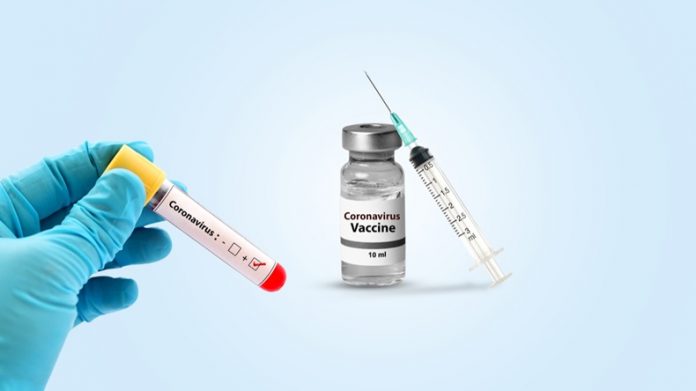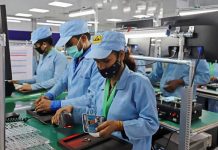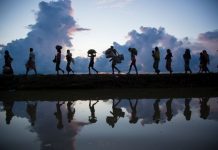This article is written by Jannat, from Chandigarh University, Mohali. The article talks about the confusion over COVID vaccination doses and the role of the courts in the same.
Table of Contents
Introduction
Every year, vaccines save millions of lives. Vaccines work by training and preparing the body’s natural defences, the immune system, to identify and combat the viruses and bacteria they are specially designed to combat. If the body is later exposed to such disease-causing germs after vaccination, the body can kill them right away, avoiding illness. Although continuous efforts are being made by scientists all over the world, an instant cure for COVID seems unlikely to arrive anytime soon. Under such circumstances, vaccines are the only secure way of preventing this dangerous virus. Yet people have turned into sceptics doubting the credibility of these vaccines. When India has recently witnessed a record-breaking surge in the number of cases and deaths, the hesitation for getting vaccinated is appalling.
Unfortunately, a lot of misinformation has circulated about vaccines and their effects. It’s important to distinguish between misconceptions and reality when determining whether or not to get the vaccine.
Myth versus facts
Myth
Since the COVID-19 vaccine was produced so rapidly, it is dangerous.
Fact
Vaccines that have been approved are safe and reliable. They went through the same comprehensive Food and Drug Administration process as other vaccines, meeting all safety requirements, despite being produced in record time. There were no steps that were missed. Instead, we should thank unparalleled global cooperation and investment for the vaccines’ production being completed in less time. Clinical trials and safety evaluations took around the same amount of time as they did with other vaccines.
Myth
The COVID-19 vaccine would cause my DNA to be altered.
Fact
The first vaccines approved for emergency use include messenger RNA (mRNA), which tells cells to make the new coronavirus’s “spike protein.” When the immune system recognizes this protein, it produces antibodies, which teach the body how to defend itself from infection in the future. The mRNA never makes it into the nucleus of the cell, where our DNA (genetic material) is stored. The body disposes of the mRNA as soon as the instructions have been completed.
Myth
The COVID-19 vaccine causes serious side effects, including allergic reactions.
Fact
Some vaccine trial participants reported side effects similar to those seen in other vaccinations, such as muscle pain, chills, and headache. People may also have serious allergic reactions to vaccine products, but this is extremely rare. That’s why doctors advise against getting the vaccine if you’ve had a history of serious allergic reactions to the vaccine’s ingredients, such as anaphylaxis.
Myth
The COVID-19 vaccine makes women infertile.
Fact
According to misinformation on social media, the vaccine causes the body to target syncytin-1, a protein found in the placenta, which can cause infertility in women. The fact is that the spike protein and a placental protein share an amino acid sequence; however, experts believe it’s too short to trigger an immune response and therefore has little effect on fertility.
Myth
Since I’ve already been diagnosed with COVID-19, I don’t need the vaccine.
Fact
Even though you’ve already had COVID-19, there’s proof that the vaccine will still help you. Experts are unsure how long someone will be safe from becoming ill again after recovering from COVID-19. Natural immunity, or immunity gained as a result of an infection, differs from person to person. Early evidence indicates that natural immunity could be short-lived.
Myth
I won’t need to wear a mask after getting the COVID-19 vaccine.
Fact
Until a sufficient number of people are immune, masking, handwashing, and physical separation is needed in public. People who have been completely vaccinated do not need to wear masks when they meet with other fully vaccinated people.
Myth
COVID-19 may be acquired from the vaccine, according to legend.
Fact
The vaccine does not contain the live virus, so you cannot contract COVID-19 from it.
Myth
I will test positive for COVID-19 after receiving the vaccine.
Fact
COVID-19 is diagnosed using viral tests that look for the virus that causes COVID-19 in samples taken from the respiratory system. The vaccines do not affect your test results because they contain no live virus. Before the vaccine has had time to completely protect your body, you may become infected with the virus.
Myth
I’m not at risk for serious COVID-19 complications, so I don’t need the vaccine.
Fact
You can contract the infection and spread it to others regardless of your risk, so it’s important to get vaccinated. It is recommended that as many qualified individuals as possible receive the vaccine until it is widely available. It’s not only for your safety but also for the safety of your family and friends.
Myth
If I get the COVID-19 vaccine, I’ll be more likely to get sick with another disease.
Fact
No proof having the vaccine increases the chances of contracting another infection like the flu.
Myth
Since some blood types have milder COVID-19 infections, a vaccine isn’t needed.
Fact
According to research, there is no reason to assume that having a specific blood type increases the incidence of COVID-19. You are protecting not only yourself and your family, but also your social surroundings, by getting vaccinated.
Wastage of vaccine
Health officials in India said on Wednesday that about 6.5 percent of coronavirus vaccine doses are wasted, urging states to better control their immunization drives to maximize the use of what one called “this elixir-like precious commodity.” Although several urban vaccination centres have been overcrowded, several rural sites have had to nudge people to get vaccines due to a lack of public knowledge, which can result in vaccine wastage. Once a vaccine vial is opened, doses must be administered within four hours, necessitating the coordination of the flow of recipients by health workers.
The central government’s health ministry has provided 75.4 million vaccine doses to India’s states, with 36 million doses being used so far. India is using an AstraZeneca shot as well as one produced by Bharat Biotech at home. The government did not state how many doses were thrown away, but the percentage indicates it may be more than 2 million, which is a large number considering that many countries have yet to begin immunizing their people and India is still immunizing priority groups. “Wasting this elixir-like precious commodity, which is now the most important thing for a person or a country as a whole, is completely wrong,” top health official Vinod Kumar Paul said at a press conference.
Role of courts
Delhi High Court
The Delhi High Court has advised the Central and Delhi governments to resolve the scarcity of the COVID-19 vaccine, Covaxin, to administer the vaccine’s second dose.
Justice Rekha Palli’s bench said, “You’re now attempting to minimize the harm by instructing private hospitals to only prescribe the second dose of Covaxin. It is impossible to vaccinate everybody.”
Allahabad High Court
The Allahabad High Court, hearing a PIL on Uttar Pradesh’s handling of the Covid pandemic, issued a slew of directives to the state government on Tuesday, ranging from giving the state government 48 hours to form a three-member grievance committee in each district to requesting a roadmap from the state and federal governments on how they intend to vaccinate “illiterate labours and other villagers” in the 18+ category “if they are not able to register online for vaccination”.
The Court has also ordered the government to reconsider the amount of compensation to be paid to the families of polling officers who died of Covid while on duty during the recent panchayat elections, stating that it “must be at least Rs 1 crore.”
Bombay High Court
The Bombay High Court (Nagpur Bench) will rule on a petition requesting an online examination or vaccination for nearly 45,000 undergraduate medical students who are scheduled to take the theory exam physically on June 10, 2021. The PIL was heard by a single bench of Justice Avinash Gharote, who reserved it for orders, citing a shortage of vaccines and questioning the fate of people if would-be doctors are afraid of disease.
“Life is uncertain…”
“You aspire to work in a noble career. And you’re worried about catching the disease? What will happen to the citizens if a would-be doctor loses his courage?”
In December, doctors could opt to appear for two semesters at the same time, he said.
Madras High Court
“We should not be caught napping when the next Covid-19 wave reaches us,” the Madras High Court warned the central government, referring to issues ranging from oxygen to vaccines and Remdesivir availability.
The first bench of Chief Justice Sanjib Banerjee and Senthilkumar Ramamoorthy ordered the Centre to develop a comprehensive strategy to combat future pandemic waves. It also ordered civic bodies in Tamil Nadu to crack down on exorbitant fees demanded in crematoriums and burial grounds to dispose of the bodies of the covid-19 victims. “Though the state has begun vaccination drives for the 18-plus age group, it appears that there may not be sufficient doses of vaccine available,” the bench said. “Suggestions have been made to look into the Sputnik vaccine, which has been successfully tested, as well as the single-dose variant thereof,” the judges continued.
Gujarat High Court
During the destructive second wave of the coronavirus pandemic, the Gujarat High Court chastised the state government for slowing down the vaccination campaign in the state. The court also asked the state government to consider setting aside some vaccines for beneficiaries who register on the spot, especially in rural areas where people do not have access to online registration.
Although the Centre recently approved on-site registration and appointment for people aged 18 to 45, the Gujarat government has stated that it will continue to administer vaccinations using the current method, which requires prior registration and appointment. “For example, if you have 100 [doses] allocated for today, you can register online for 80 of them, leaving the remaining 20 for spot registration,” Justice Karia explained.
Conclusion
Being vaccinated does not exempt us from exercising caution and putting ourselves and others at risk. The research into the extent to which vaccines protect not only against disease but also against infection and transmission is still ongoing. Whenever a situation as dangerous and fatal as the pandemic arises, public fear and panic are reasonable. Hence, it is the responsibility of the government to instil faith amongst the citizens in order to seek their cooperation. Also, the government should support public funding to the biopharma companies in order to cope better with such situations.
References
- https://www.barandbench.com/amp/story/news/litigation/delhi-high-court-covaxin-shortage-case
- https://indianexpress.com/article/india/from-covid-vaccine-plan-to-compensation-allahabad-high-court-wants-answers-from-up-7312805/
- https://www.indiatoday.in/coronavirus-outbreak/story/madras-hc-questions-centre-on-vaccine-oxygen-production-1800103-2021-05-08
- https://scroll.in/latest/995913/coronavirus-you-have-a-five-year-plan-hc-pulls-up-gujarat-on-vaccination-pace-of-18-45-age-group
LawSikho has created a telegram group for exchanging legal knowledge, referrals, and various opportunities. You can click on this link and join:
 Serato DJ Crack 2025Serato DJ PRO Crack
Serato DJ Crack 2025Serato DJ PRO Crack











 Allow notifications
Allow notifications


